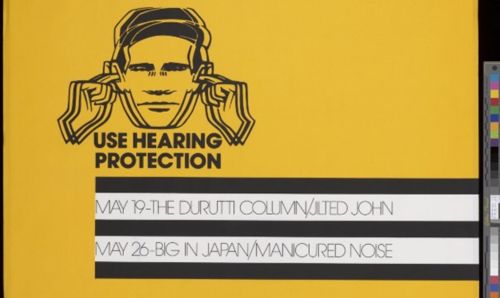Hulme, Manchester: a failed planner's dream to cultural incubator
Jack’s project examines the Hulme Crescents and wider housing estate, which despite design and construction failings, became a space in the 1980s for an alternative subcultural community to emerge, becoming vital to the wider cultural scene of Manchester.

The research aims to understand how a place comes to be formed and reformed by those designing it, those living and working there, and in the tension between modernist redevelopment, deindustrialisation, and culture.
The rapid decline of the Hulme Crescents – part of a modernist housing estate of 5000 homes – over the 1970s represented a failure of post-war planning and was a symbol of economic and industrial decline locally and nationally. By the 1980s the council had stopped housing families and the elderly in Hulme, which resulted in the estate being populated by single household occupants, predominantly young people, many living rent-free. Over the decade many bands, DJs, artists, and creatives emerged from Hulme. Located in Hulme was the Russell club (later the PSV club), an after-hours club The Kitchen in a knocked through flat, and the Aaben repertory cinema; the estate was also close to the universities, the city centre, and the Hacienda.
Often the history of Hulme is one of slum clearance, failed modernist planning, followed by public-private redevelopment. The aim of this project is to refocus on how the Hulme Crescents supported an alternative community, whose subcultural impulses continue to influence the redevelopment of Manchester, which relies heavily on the cultural capital of this period.
This research will inform our understanding of the post-war history of Manchester, which in turn informs the present day in Manchester and Britain, with regards to affordable housing for the young and places for culture to thrive outside of official sites. It also informs wider histories of the 1980s and the social, political, and economic shifts of that decade.
In the initial phase of the project Jack is exploring archival material from a series of archives at the Rylands, Manchester University and Manchester Central Library. These include the British Pop Culture Archive, which features fanzines, magazines, flyers, posters, diaries and photographs; the Ahmed Iqbal Ullah RACE Centre, which has materials related to the Hulme Study; and the Manchester Libraires Archive which houses papers from the Hulme Tenants Participation Project. As the project evolves Jack hopes to build upon the archival research by conducting interviews with former residents of the Hulme Crescents and wider estate.
Current projects
Our research work is improving our understanding of people, cultures and societies around the world.
Read more
Past projects
An overview of completed projects from the John Rylands Research Institute and Library dating from 2017.
Read more
